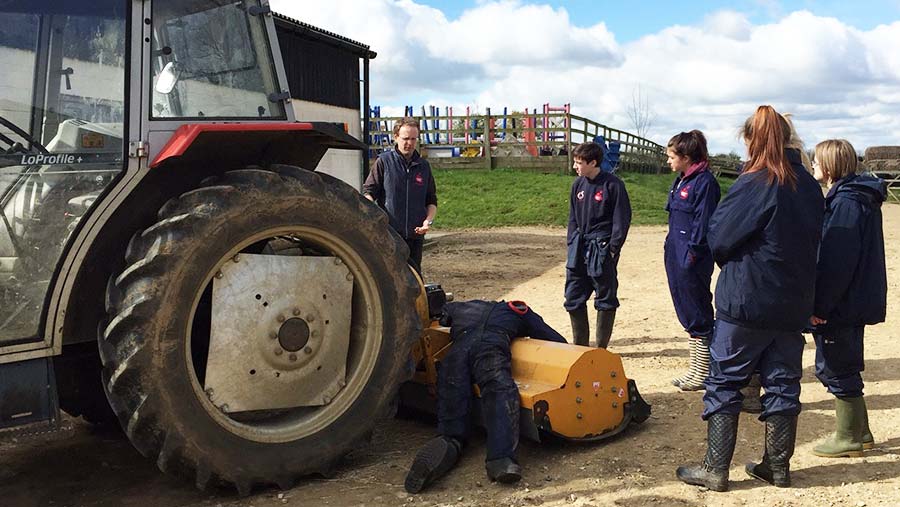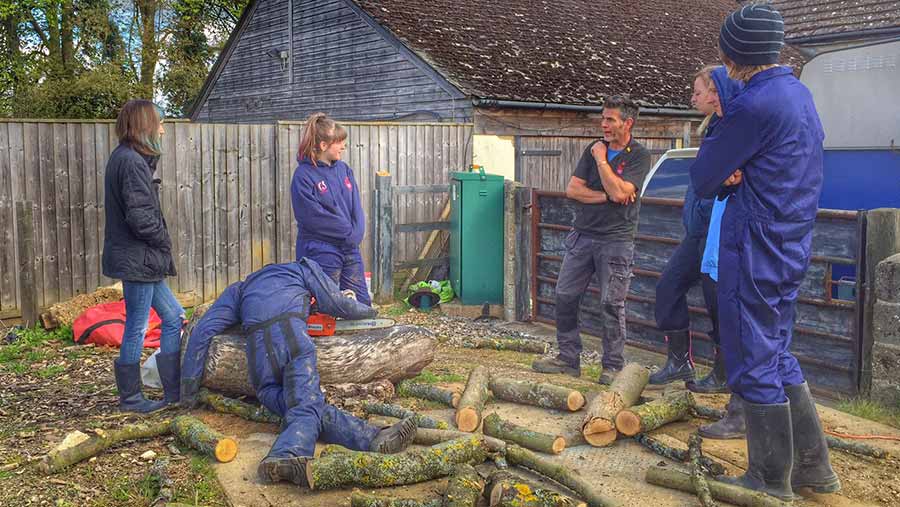Risk-taking culture rife among young farmers
 Training on the safe use of tractors © Farm Safety Foundation
Training on the safe use of tractors © Farm Safety Foundation Young farmers continue to take unnecessary risks on farm despite knowing their actions are unsafe, new research shows.
Many young farmers believe their attitudes towards farm safety have changed thanks to industry initiatives such as Farm Safety Week (4 – 8 July) and the Farm Safety Foundation’s Yellow Wellies campaign.
But although 96% agreed they were increasingly well informed about how to stay safe on farms, many said they continued to take risks.
For the research, carried out by the Farm Safety Foundation, 250 young farmers aged 18 to 40, based in the UK, were surveyed about their attitudes to farm safety.
When asked specifically about certain ways of working on farm, the responses to the survey suggest an increase in unsafe behaviour.
See also: 10 shortcuts that could kill you at harvest
Of those polled, 44% agreed slightly and 13% agreed strongly that they were prepared to take risks when doing jobs around the farm.
Nearly one-third (29%) agreed slightly and 8% agreed strongly that they cut corners – even if they know it makes jobs unsafe.
And 34% agreed slightly and 20% agreed strongly that they sometimes tackle repair jobs themselves to save money, even if outside their skill-set.
In addition, 16% agreed slightly and 4% agreed strongly that they follow unsafe orders from someone “even if I know it’s not safe”.

Mishandling chainsaws can cause serious injury, young farmers are told at Abingdon and Witney College © Farm Safety Foundation
The majority of farmers admitted they climbed on to roofs, even if they were unsafe; climbed ladders that were not properly secured or damaged; and worked when they were tired.
However, the survey found that positive behaviour towards farm safety was widespread, but far from universal.
For example, 79% wear safety gear when necessary, 74% usually use restraining/handling facilities for animals, and 77% check for potential hazards.
But 13% said they worked unsafely with slurry and 11% admitted they did not check tractors or machinery before use.
The survey also found that “near misses” and minor accidents remain common on farms, especially concerning slips and trips, livestock handling, transport and farm machinery.
More ‘noise’ needed to tackle poor attitudes
Stephanie Berkeley, the farm safety campaign specialist at the Farm Safety Foundation, said: “Currently, risky behaviours remain something that young farmers admit to do.
“This needs to change. The greater ‘noise’ being created must be used to address attitudes, encouraging a dialogue about why risky behaviour will eventually lead to an accident.”
Ms Berkeley added that a lot more could be done to help young farmers work safely at all times.
“As the next generation of farmers, young people with a solid knowledge of safe working practices will have a greater capability to make informed and safe decisions, which can only be good for the future of the industry.”
About half of the under 30s surveyed were members of young farmers’ clubs, which remains a “key channel to reach this age group”.
James Eckley, chief officer of the National Federation of Young Farmers’ Club (NFYFC), said the organisation was “fully committed” to promoting farm safety among members.
He added: “We are keenly aware that more work needs to be done to change the behaviour of young people working on farms.
“Future plans include working closely with the Yellow Wellies campaign, the Farm Safety Partnership and the HSE to address this.”
